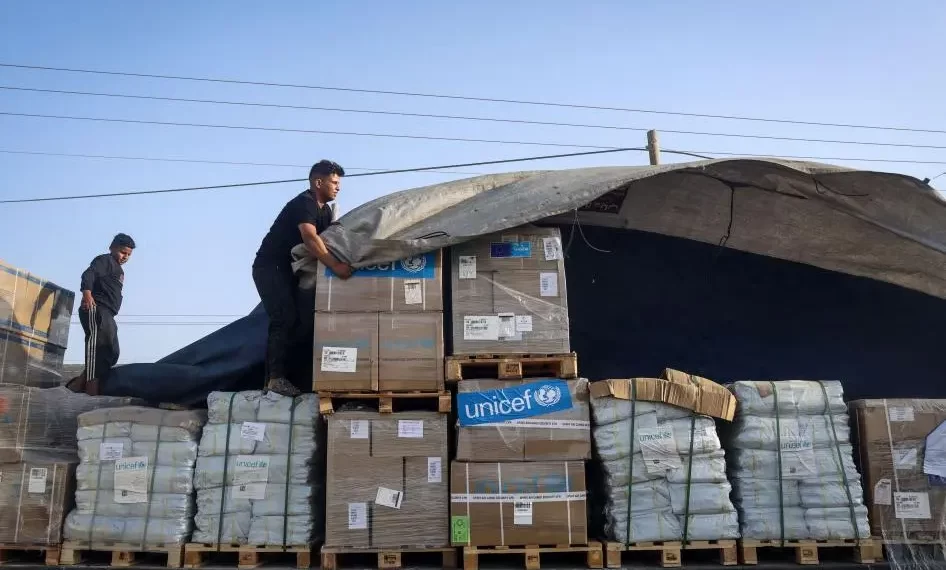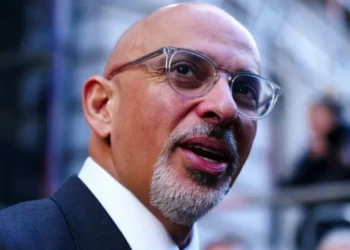Countries, including the US, UK, Italy, Switzerland, Germany, Finland, the Netherlands, and Australia, are delaying a decision on resuming funding for the Palestinian relief agency, Unrwa.
UK Foreign Office minister Andrew Mitchell revealed that the countries are awaiting two interim reports on the organization before making a final decision. This stance contrasts with Sweden, Canada, and the EU, which have already chosen to restart funding.
Mitchell’s comments during a discussion with British MPs indicated a global divide on the issue. Despite the uncertainty, Mitchell expressed confidence in Unrwa’s financial stability, emphasizing that the agency has sufficient funds to endure.
Mitchell recently met with Philippe Lazzarini, the director of Unrwa, in London.
But, the delay in the funding decision is expected to extend for several weeks.
Two reports, awaited by Mitchell, will come from a UN internal inspectorate and Catherine Colonna, former French foreign minister.

Colonna visited Israel this week to gather evidence on Israeli claims that 12 Unrwa staff were involved in the October 7 attack that killed 1,200 Israelis, prompting many Western countries to suspend funding.
Colonna is set to present her interim report in late March 2024 and a final report a month later. Israel was expected to share intelligence this week on Hamas tunnels near Unrwa facilities, terrorist acts by Unrwa employees, and the use of Unrwa sites to launch rockets at Israel.
However, disagreements persist over the quality of evidence Israel submitted to the UN report. Tensions between Unrwa and Israel are escalating, with Cogat, the Israeli agency overseeing aid coordination with Unrwa, accusing Lazzarini of providing false information regarding aid blockages to Gaza.
Unrwa countered by asserting that some evidence implicating its staff in the October 7 attacks stemmed from coerced confessions obtained from detained staff members who had been subjected to imprisonment and physical abuse by Israelis.
Mitchell dismissed proposals for a ban on arms exports to Israel, asserting, “The current judgment of the British government is that Israel has the capacity and intent to comply with international humanitarian law.”
He emphasized that this position remains subject to review. While his statement focused on Israel’s intent rather than the outcomes of its military actions, the absence of withdrawn arms export licenses indicated the UK’s confidence in Israel’s adherence to international law.
Mitchell also highlighted that Israel has escalated the volume of trucks entering Gaza, with daily averages rising from 97 in February to 162 in March 2024.
UK Urged To Push Israel For Increased Gaza Aid
David Cameron, the foreign secretary, has advocated for Israel to permit the entry of 500 trucks into Gaza on a daily basis.
Also, Alicia Kearns, chair of the foreign affairs select committee, recently returned from Egypt and urged the UK government to pressure Israel to accept an offer from its spokesperson, Eylon Levy, to boost aid deliveries by 100 trucks daily.
In her communication outlining Levy’s proposal, Kearns expressed skepticism regarding Israel’s claims of unhindered aid access to Gaza.
She cited her observations, feedback from international aid organizations, and discussions with various governments that contradicted Israel’s assertions.
She said, “The government of Israel is stating there are no issues getting aid into Gaza. This is not the assessment I have reached, nor that of the international aid organizations I have met, nor governments with whom I have spoken. You have been equally clear in your recent statements and media interviews that Israel can increase the aid deliveries if it chooses to do so.”
While Mitchell did not directly address Israel’s offer, he stressed that road transport remained the most efficient means of delivering aid to Gaza, implicitly affirming the importance of increasing truck access over other modes like air or sea transport.
READ ALSO: Starmer Calls For Tories To Return £10m From Hester























